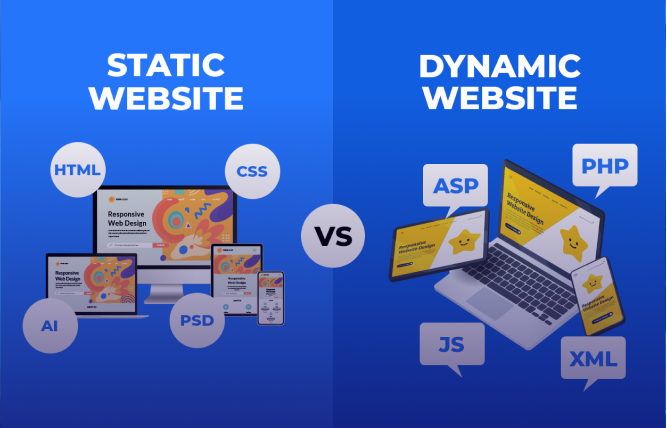Introduction
Enhancing the design and performance of your website is crucial to drive results. This article will discuss the strategies to enhance your website and optimise it to get better traffic.
A number of factors can impact website performance and play a role in Impacting user experience, SEO performance, and more. Good ebsite design can drive traffic and engage your customers. According to studies by Hostinger, 94% of customers’ first impressions are related to website design.
In this article, we will discuss some top strategies to enhance your website through website development. We will also discuss the impact of employing these strategies to help you grow your business.
Website Enhancement Strategies
In today’s digital landscape, having a website is just not enough. To stand out, it’s essential to optimise your site for performance, user experience, and search engine visibility. By employing the right strategies, you can ensure that your website not only attracts visitors but also keeps them engaged and drives conversions.
Below are some top strategies to enhance your website:
1. Improve Page Load Speed
One of the most important factors affecting user experience is how quickly your website loads. Slow-loading pages can lead to higher bounce rates, causing visitors to leave your site before it even finishes loading. To boost loading performance, optimise your images, use a content delivery network (CDN), and minimise code where possible. Tools like Google PageSpeed Insights can help identify areas where your site’s speed can be improved.
2. Mobile Responsiveness
With more people accessing websites from mobile devices than ever before, amobile-responsive website is crucial. A responsive design adjusts the layout of your website to fit different screen sizes, providing optimal user experience whether visitors are on a smartphone, tablet, or desktop. Test your site on multiple devices to ensure it looks and functions well everywhere.
3. Enhance User Experience (UX)
User experience plays a huge role in keeping visitors on your website and encouraging them to act. Simplify navigation by organising your content intuitively, making it easy for users to find what they are looking for. Keep your design clean and intuitive, avoid clutter, and ensure that call-to-action buttons are clearly visible and easy to interact with. Focus on creating a user-friendly experience that aligns with your website goals.
4. Optimise for SEO
Search engine optimisation is key to driving organic traffic to your site. Start by researching keywords relevant to your business and incorporating them into your content, meta descriptions, and headings. Focus on creating high-quality content that provides value to users. Additionally, ensure your website structure is easy for search engines to crawl by using proper headings, internal linking, and an XML sitemap.
5. Use High-Quality Visuals
The design and aesthetics of your website significantly impact how visitors perceive your brand. Using high-quality, professional visuals such as images, graphics, and videos can make your site more engaging and visually appealing. However, ensure that these elements are optimised for web performance, so they don’t slow down your site’s load time.
6. Regularly Update Content
Keeping your website content fresh and relevant is crucial to both user engagement and SEO. Regularly update your blog, news section, and product pages with valuable and updated information. Content updates signal to search engines that your site is active, helping it rank higher in search results. In addition, consider adding a content calendar to ensure consistency.
7. Incorporate Strong Call-to-Actions (CTAs)
A well-designed website guides visitors toward acting, whether signing up for a newsletter, making a purchase, or contacting your team. Incorporate clear, compelling calls-to-action throughout your website that prompt users to engage. Ensure these CTAs stand out with contrasting colours or buttons and place them in spots that can grab attention, such as above the fold or at the end of blog posts.
8. Ensure Website Security
Website security is essential for building trust with your visitors, especially if you handle sensitive information like payments or personal data. Ensure your website has an SSL certificate, which encrypts data between the user and your site. Regularly update your content management system, plugins, and security software to protect against vulnerabilities and cyber-attacks.
9. Leverage Analytics
Using web analytics tools such as Google Analytics allows you to track visitor behaviour, popular pages, bounce rates, and other key metrics. Analysing this data helps you understand where your website is doing well and where it needs improvement. Use these insights to refine your content, improve user flow, and enhance the overall performance of your site.
10. Add Social Proof
Social proof, such as customer reviews, testimonials, or case studies, adds credibility to your website and encourages potential customers to trust your brand. Display positive feedback prominently on your homepage, product pages, or landing pages to build confidence among visitors. Including social media integration can also enhance engagement and visibility.
Benefits of Optimising Your Website for Your Business
Optimising your website goes beyond improving its appearance—it directly impacts your business growth and success. A well-optimised website can attract more visitors, enhance user experience, and ultimately convert leads into loyal customers.
Here are some key benefits of optimising your website for your business:
Increased Visibility & Traffic
One of the primary benefits of website optimisation is improved search engine rankings. By optimising your content for search engines (SEO), your website is more likely to appear higher in search results when potential customers are looking for products or services in your niche. Better visibility leads to increased organic traffic, allowing more people to discover your business without relying solely on paid advertising.
Enhanced User Experience (UX)
A well-optimised website provides a better user experience, which is crucial for keeping visitors engaged. This includes making your site easy to navigate, ensuring fast load times, and being mobile-friendly. A positive user experience encourages visitors to stay longer on your site, explore your offerings, and ultimately take action, whether it’s making a purchase or contacting you for more information.
Higher Conversion Rates
When your website is optimised, it becomes more efficient at turning visitors into customers. Clear navigation, compelling calls-to-action buttonss, and engaging content all contribute to higher conversion rates. By streamlining the user journey, you make it easier for potential customers to find what they are looking for and complete actions such as signing up for newsletters, requesting quotes, or making purchases.
Competitive Advantage
In a crowded digital marketplace, optimising your website can give you an edge over competitors. A well-optimised site that ranks higher in search results, loads faster, and offers a superior user experience will attract more visitors and convert them at a higher rate than competitors with less optimised websites. This can help you stand out in your industry and establish a stronger online presence.
Improved Brand Credibility
A professional and well-optimised website enhances your brand credibility. Visitors are more likely to trust a business whose website is visually appealing, user-friendly, and informative. Optimising your site shows potential customers that you are serious about your business and committed to providing value. Features like social proof, testimonials, and SSL certificates further build trust with your audience.
Better Mobile Experience
With more users accessing websites through mobile devices, ensuring your site is mobile-responsive is critical. Optimisation for mobile devices allows your website to adjust its layout and functionality based on the user’s screen size, providing a seamless experience on both smartphones and tablets. This not only enhances user experience but also improves your mobile search rankings.
Cost Efficiency
Optimising your website can reduce marketing costs over time. By increasing organic traffic through SEO, you rely less on paid ads to attract visitors. Additionally, an optimised site that converts well means you are getting more value from each visitor, leading to a higher return on investment (ROI) for your marketing efforts.
Faster Load Times
Page speed is a crucial factor in both user experience and SEO. Optimising your website ensures faster load times, which reduces bounce rates (the % of visitors leaving your site quickly) and keeps users engaged. A fast-loading website not only improves customer satisfaction but also helps boost your rankings on search engines like Google, which prioritise speedy sites.
Adaptability and Future Growth
An optimised website is more adaptable to future changes, such as updates to search engine algorithms, new devices, or changes in user behaviour. By continuously optimising and maintaining your site, you ensure it can grow and evolve with your business. This adaptability is key to staying relevant in a constantly changing digital landscape.
Data-Driven Improvements
Optimising your website often involves tracking user behaviour and performance metrics through tools like Google Analytics. These insights provide valuable data about how visitors interact with your site, allowing you to make informed decisions about what is working and where improvements are needed. This data-driven approach ensures you are constantly refining your site to better meet user needs and business goals.
Conclusion
If you are looking to increase traffic on your website, you will need the help of an expert custom website developer. Our team at FuturByte will help you navigate all the hurdles of optimising your website and conduct all the strategies that can help you improve SERP rankings as well as customer experience.
Frequently Asked Questions
Page load speed is crucial because users expect fast websites. If your site takes too long to load, visitors are likely to leave, which increases your bounce rate and negatively affects user experience. Google also uses load speed as a ranking factor, so faster websites have better chances of ranking higher in search results.
To make your website mobile-friendly, you need to use a responsive design. A responsive design automatically adjusts the layout of your website depending on the device (smartphone, tablet, desktop). Testing your website on different devices and screen sizes, using mobile-friendly themes, and ensuring touch elements are easy to interact with are key steps.
SEO (Search Engine Optimisation) involves optimising your website’s content, structure, and performance to rank higher in search engine results. By incorporating relevant keywords, improving site speed, and enhancing user experience, SEO helps drive more organic traffic to your website and increases your visibility online.
To improve UX, focus on making your website easy to navigate, fast, and visually appealing. Streamline your menu, use clear call-to-actions (CTAs), and ensure the design is intuitive. Simplify the user journey and provide valuable content that addresses the needs of your visitors. Regularly testing your site for usability can also help identify areas for improvement.
High-quality visuals make your website more engaging and professional. However, it’s important to optimise images and videos for fast loading. Using compressed image files, lazy loading, and ensuring media files don’t slow down your site’s performance can improve both user experience and SEO.
Have questions or feedback?
Get in touch with us and we‘l get back to you and help as soon as we can!




